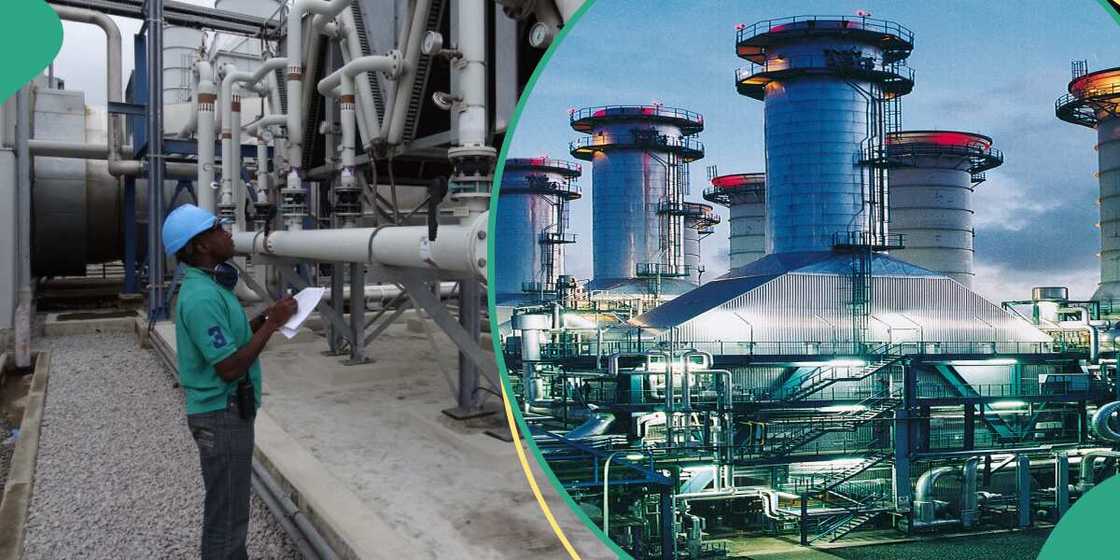Nigeria’s Power Supply Gets Boost as Billionaire Deji Adeleke Unveils Landmark 1,250MW Plant
- Billionaire Deji Adeleke has been praised for completing and commissioning a 1,250MW power plant in Omotosho, Ondo State
- The commendation came from a citizens' club, which described the project as a significant step toward solving Nigeria’s power supply challenges
- They hailed Adeleke’s visionary leadership, noting that his efforts serve as an inspiration to entrepreneurs in Ede and across the country
Legit.ng journalist Victor Enengedi has over a decade's experience covering Energy, MSMEs, Technology, Banking and the Economy.
Dr. Deji Adeleke, chairman and managing director of Pacific Holdings Limited, parent company of Pacific Energy Company Limited, has been applauded for completing and commissioning a 1,250MW power plant in Omotosho, Ondo State.

Source: UGC
Applause for Adeleke’s milestone in energy sector
The recognition came from the Ede Senior Citizens Club, which congratulated its patron for delivering a project that is expected to significantly enhance Nigeria's electricity supply.
In a statement signed by its President, Alhaji Mumini Lekan Salami, the Club described the development as a bold and visionary contribution towards solving the country’s long-standing power challenges.
The statement said:
“Power is the backbone of industrial development and a vital infrastructure for boosting civilization. The investment of our dear patron, Dr. Deji Adeleke, in this sector is highly commendable and worthy of celebration.”
According to the statement, reliable power is central to industrial growth and modernisation, and Dr. Adeleke’s investment stands out as a model for other Nigerian entrepreneurs.
The Club further praised his leadership, noting that his efforts continue to inspire both the people of Ede and the wider Nigerian society, ThisDay reports.
They also prayed for the project's sustainability and success, expressing hope that more indigenes would emulate such impactful initiatives.
Adeleke's power plant to employ over 2,000 workers
Adeleke has revealed that his ongoing 1,250MW power plant project will create more than 2,000 direct jobs for engineers and technical workers once operational.
Speaking at the 11th convocation ceremony of Adeleke University in Ede, Osun State, Dr. Adeleke, who is also the father of Afrobeats superstar Davido, stressed that the project is not only a milestone for his Pacific Energy Company Limited but also a bold intervention to address Nigeria’s chronic electricity shortages.

Read also
Primate Ayodele sends fresh message to top Tinubu's appointee amid plot to remove oil chief
The $2 billion (about N3.42 trillion) investment, first announced in 2024, is projected to become the largest single power generation facility in Nigeria upon completion.
With the nation’s power sector plagued by persistent blackouts, unreliable supply, and inflated billing, stakeholders see the Omotosho plant as a critical step toward stabilising energy access for households and industries.
Beyond job creation, the project is expected to stimulate industrialisation, reduce Nigeria’s dependence on small-scale generators, and encourage other private-sector players to channel investments into large-scale infrastructure.
Energy experts believe such initiatives could help close the gap between Nigeria’s current electricity generation, hovering around 4,500MW for over 200 million people, and the demand, which is estimated to exceed 30,000MW.

Source: UGC
6 states to pay highest electricity tariff
Meanwhile, Legit.ng earlier reported that the Nigerian Electricity Regulatory Commission (NERC) had disclosed that electricity consumers in six states will bear the highest tariffs in the country.
According to the report, households and businesses in Adamawa, Borno, and Yobe, under the coverage of Yola Electricity Distribution Company (YEDC), are billed an average of N266.64 per kilowatt-hour, the highest nationwide.
NERC attributed the hike to elevated operating costs in the region, caused by insecurity, frequent vandalism, and inadequate infrastructure, which continue to hinder efficient power distribution.
Source: Legit.ng




